PHILADELPHIA, 14 September –- Gamification with Kevin Werbach of the University of Pennsylvania’s Wharton Business School, Week 3!
Gamification is a technique for motivation, so it ties very directly into psychology. This unit introduces the behavioral psychology concepts relevant to gamification.
Class Notes — Part 5 — Psychology & Motivation I
5.1 Gamification as motivational design
Psychology is essential to what makes gamified services effective.
**Motivation** – moved to do something
reasons we do things can be complicated and counterintuitive
lots of people work really hard at low paying jobs
we all do things for other reasons than rewards
we do things like sports, even if we don’t win, because they’re “fun”
What motivates us? – It’s complicated! 😛
Apple Store – highest grossing retail chain in USA – different idea for computer store, not fast, but linger with the products – think about motivation in a systematic way…
5.2 Behaviorism
2 major traditions on psychology:
Behaviorism – what people do
Cognitivism – mental states
Internal mental states are not scientifically testable –> behaviorist program: put person in a black box, and test out in the world
–> powerful, but major limitations
Classical Conditioning – Pavlovian Conditioning – Stimulus Response
Operant Conditioning – B. F. Skinner – not just association of 2 things, but a feedback loop: Stimulus –> Response –> Learining
consequences of actions
Behavioral Economics
people make “mistakes” consistently
– Loss Aversion
– Power of Defaults
– Confirmation Bias
5.3 Behaviorism in Gamification
Feedback – immediate reaction – know how well you’re doing!
Conditioning Through Consequences
(operant conditioning loop)
Farmville > “Appointment Mechanic” – having to constantly check in and tend to your virtual farm – behavioral approach
Typical of PBL types of Gamification – behavioral feedback loop
Rewards – real and powerful, but only one piece in the toolbox
Dopamine (pleasure, learning)
5.4 Reward structures
Foursquare – rewards for all sorts of things – checking in, 10 checkins, every day checkins, etc
What kinds of behavior do you want to incentivize
Categories of Rewards > Cognitive Evaluation Theory
• Tangible / Intangible – eg Money / Badge (physical Boy Scout Badge is still “tangible” (physical)
• Expected / Unexpected – we love surprises!
• Contingency
— Task non-contingent
— Engagement-contingent
— Completion-Contingent
— Performance-Contingent
WoW Fishing – a lot of complexity that can go into Reward Design
5.5 Reward schedules
Continuous Rewards –
Fixed Ratio Rewards – every N times you get the reward
Fixed Interval Rewards – based not on activity level, but on time
Variable – reward on no fixed schedule
Continuous – least interesting – not really a reward then
Fixed (Ratio, Interval) – brain picks up on pattern
Variable – most interesting – our brains love surprises
our brains are really good at picking things out – we respond powerfully to unexpected, variable schedule rewards
Variability
• Competitive / non-competitive
• Certain / uncertain
Slot Machine
– tangible rewards
– variable rewards schedule – reward comes just enough so you don’t give up (DRL) – person playing holds out that hope – if I just put in a few more coins I’ll win that jackpot
Addicting people can be dangerous and potentially harmful to people!
There’s a real danger of going down this behavioral path.
Optional Materials: David Freedman, The Perfected Self, The Atlantic, June 2012

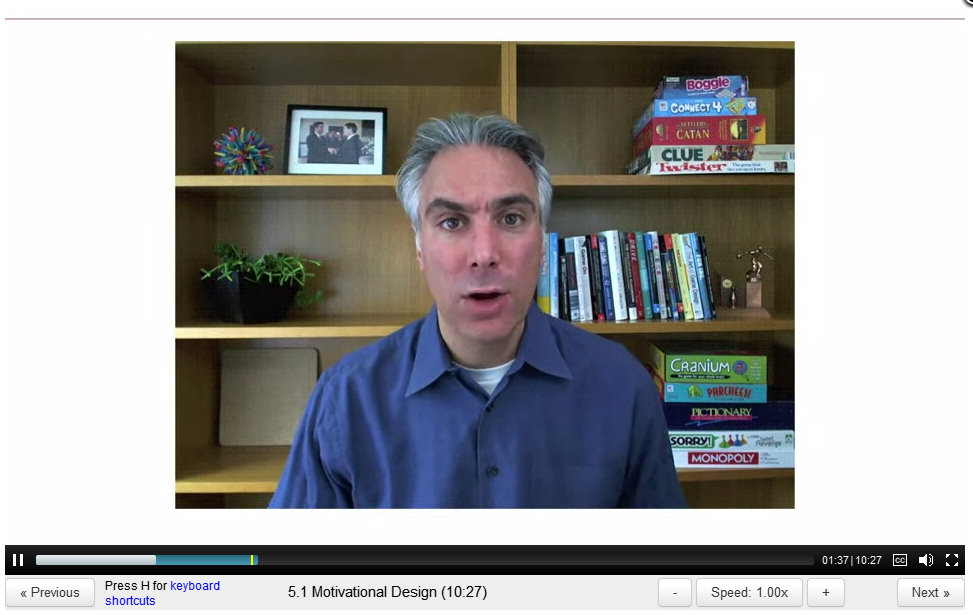
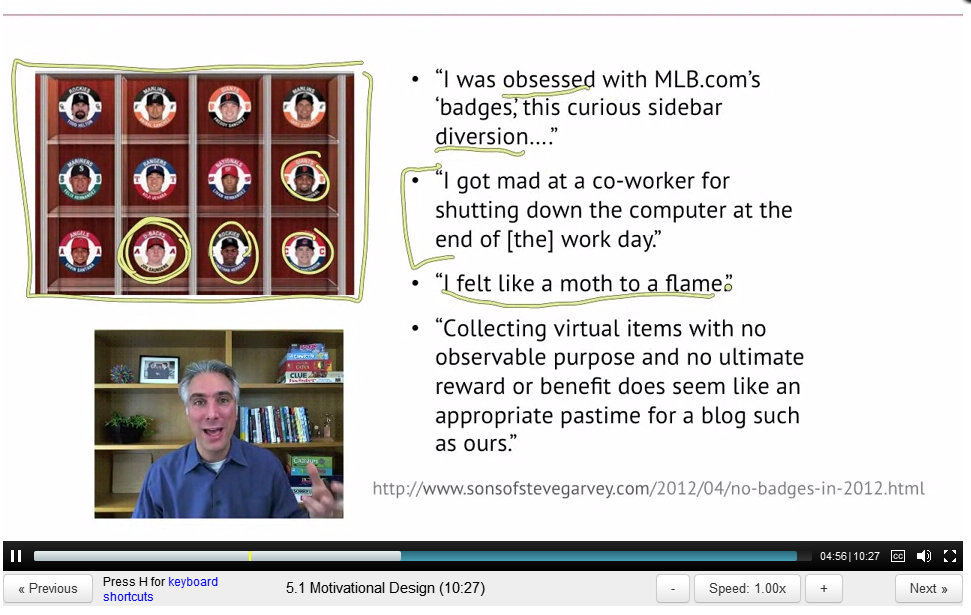
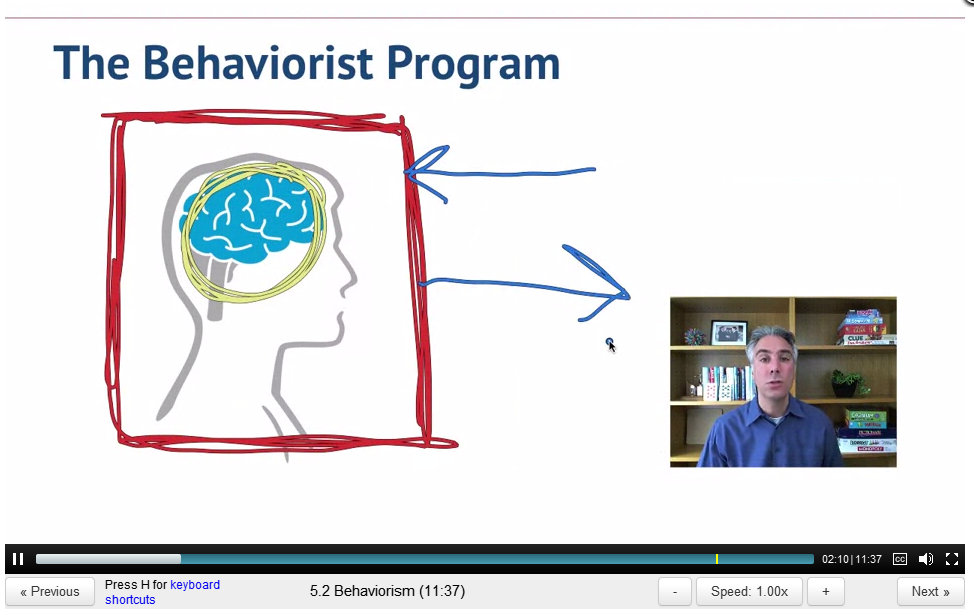
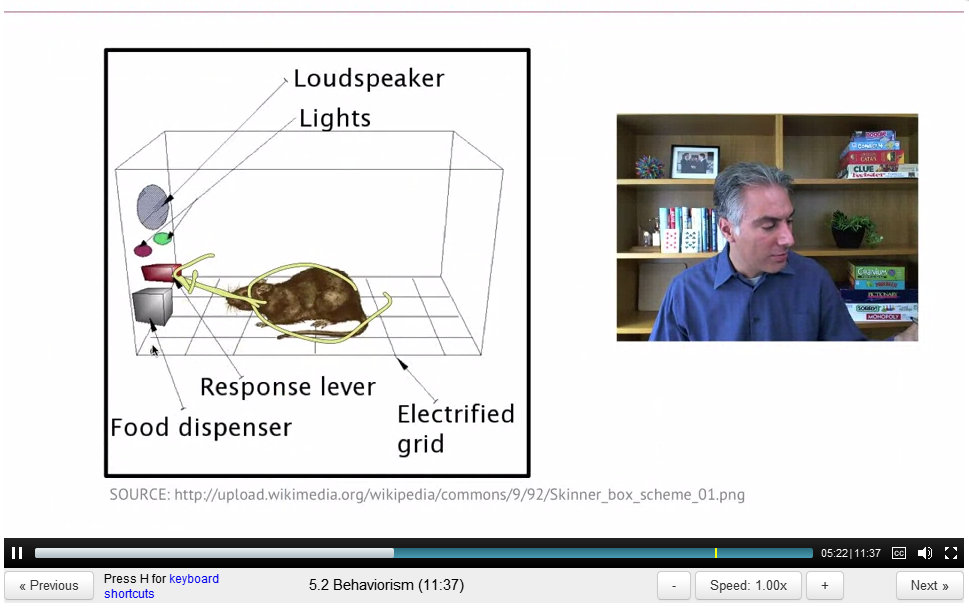
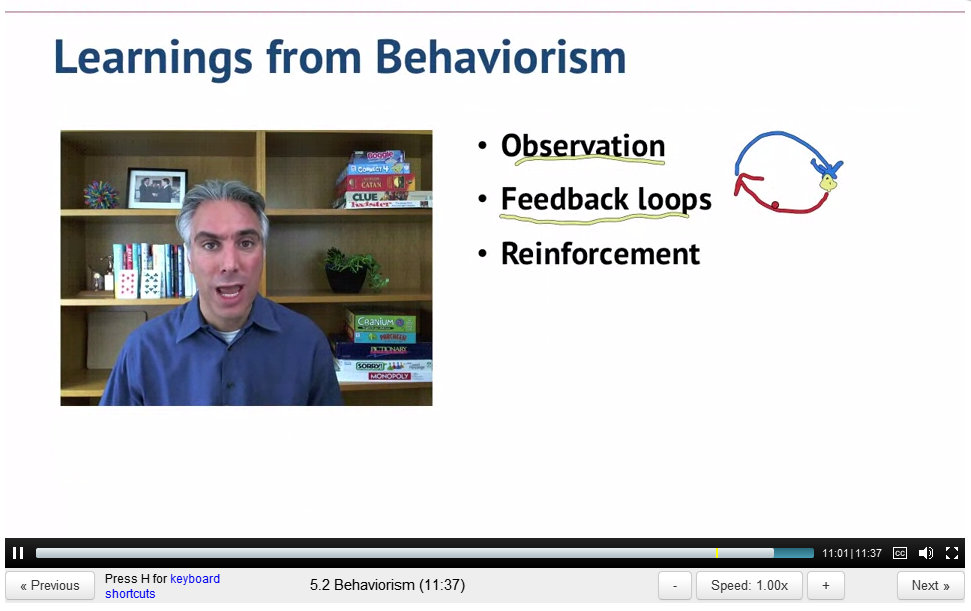
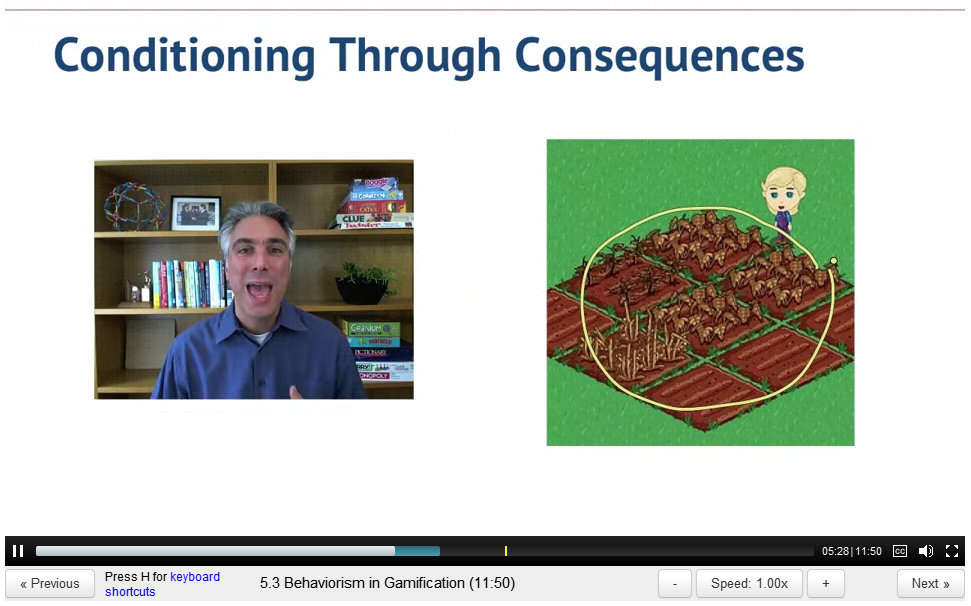
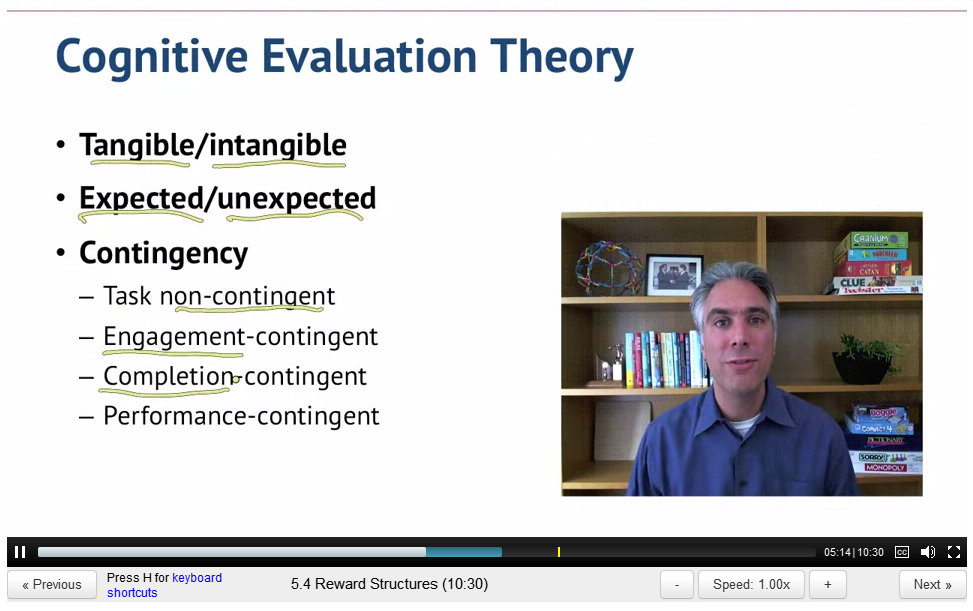
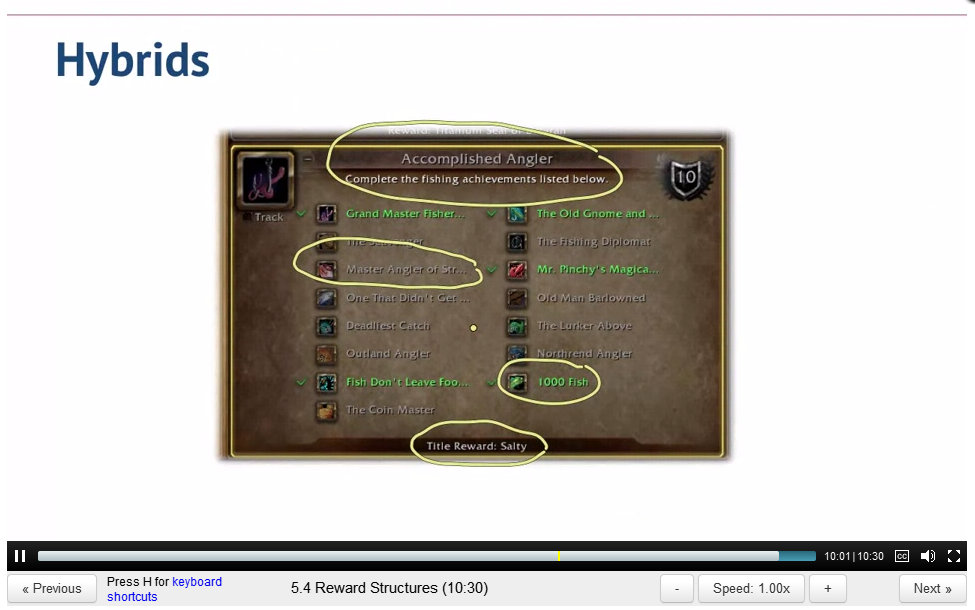
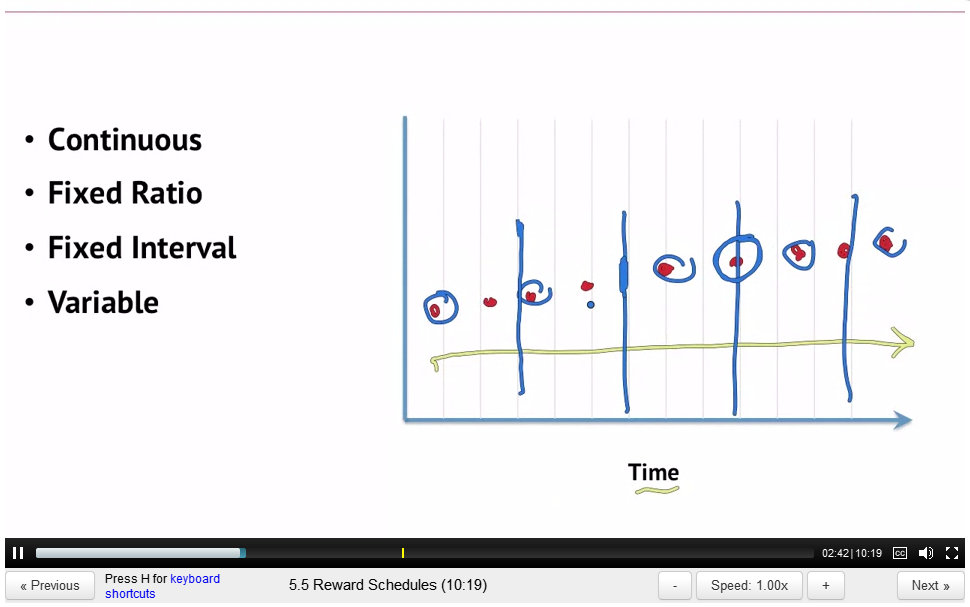
Thanks very much for posting these notes. I’m taking the course now, and I somehow lost all the notes I took on this section and I haven’t taken the quiz yet. I didn’t want to go back and watch the videos all over again 🙂 The screenshots are helpful too!
Hey Lauren, that’s awesome. I really enjoyed the class. A lot of interesting / useful / powerful ideas for me. Also, I think Gamification can have a dark side socially, and Werbach really focused on pro-social applications, which I liked.
The was the first MOOC I’ve ever taken. I felt good keeping up with it. Now I’m more interested in meeting class peers that I can have ongoing discussion and collaboration with. I took a really nice one “Practice Based Research in the Arts” from Stanford / NovoED. The actual instructors were kind of MIA in that course, but there were 2 things that lead to a really great result anyway:
1 – collaborative teams of 6 students. Really a rich experience!
2 – short guest-artist-of-the-week videos with activities for our group to do. Great activities and also great reasons to bring the group into a more connected space.
Here’s a group website we launched at the end of that mooc:
http://PracticeBased.Re/search
How’s the class going for you?
Have you taken other MOOCs?